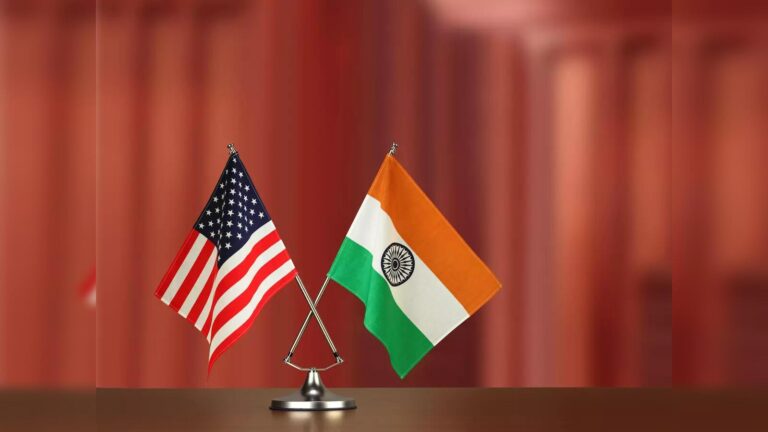As the deadline set by the Trump administration for an interim trade deal looms, India is firming up its position by drawing clear red lines in ongoing negotiations. New Delhi has signaled that while it is open to advancing trade ties with the United States, key concerns remain unresolved, placing the onus firmly on Washington to bridge gaps. With both sides navigating complex economic and political landscapes, the outcome of these talks could significantly impact bilateral relations and the broader Indo-Pacific trade framework.
India Signals Firm Stance on Key Trade Issues as Deadline Nears
India has firmly outlined its position on critical trade matters as the window to finalize an interim agreement with the United States narrows. With the deadline set by the Trump administration drawing near, New Delhi insists on preserving its key policy priorities, signaling an unwillingness to make concessions on sensitive sectors such as agriculture, pharmaceuticals, and digital services. Indian negotiators emphasize that any deal must safeguard domestic industries and development goals, reflecting a broader intention to balance trade liberalization with economic sovereignty.
The onus now lies with Washington to respond constructively to India’s red lines. While the U.S. administration has expressed eagerness to conclude the pact swiftly, New Delhi’s stance indicates that a mutually respectful dialogue is paramount to avoid derailment. Below is a brief summary of India’s principal non-negotiable issues in the talks:
- Agricultural exports: Protection against immediate tariff reductions
- Pharmaceuticals: Maintaining patent policies and access to generic medicines
- Digital economy: Data localization norms and cross-border data flow restrictions
- Manufacturing: Safeguards for the ‘Make in India’ initiative
| Trade Issue | India’s Position | U.S. Expectation |
|---|---|---|
| Agriculture | Maintain tariffs, protect farmers | Reduce tariffs for market access |
| Pharmaceuticals | Uphold patent flexibility | Stricter IP enforcement |
| Digital Trade | Data localization mandatory | Cross-border data flow unhindered |
| Manufacturing | Protect local manufacturing | Encourage open competition |
New Delhi Emphasizes Protecting Domestic Interests Amid Pressure from Washington
As the countdown to the U.S. administration’s deadline intensifies, New Delhi remains steadfast in its stance to safeguard key sectors within its economy while navigating the complex trade negotiations. Indian officials have underscored several non-negotiable points designed to protect domestic industries and agricultural communities, signaling a cautious but firm approach to the proposed interim trade agreement. Despite mounting pressure from Washington to expedite concessions, India’s leadership has made it clear that any adjustments must not compromise national economic priorities or social welfare.
Key areas highlighted by New Delhi include:
- Preservation of agricultural subsidies to support smallholder farmers.
- Protection of tariffs on essential goods critical to local manufacturing.
- Safeguarding data privacy laws amid calls for market access.
| Issue | India’s Position | Washington’s Expectation |
|---|---|---|
| Agricultural Subsidies | Maintain existing subsidies | Reduction to promote market openness |
| Tariff Protection | Retain tariffs on select sectors | Lower tariffs to boost US exports |
| Data Regulations | Strict enforcement of privacy laws | Relax rules for greater data flow |
With these red lines firmly drawn, the ball is now in Washington’s court to respond with proposals that respect India’s priorities while seeking a mutually beneficial path forward. Observers suggest that the course of negotiations will heavily depend on how both sides balance Washington’s strategic interests with New Delhi’s commitment to protecting its internal markets and social frameworks.
Experts Urge Strategic Diplomacy and Clear Concessions for Sustainable Deal
As tensions mount with the looming deadline, specialists emphasize that successful negotiations between India and the US hinge on a tactful blend of strategic diplomacy and transparent trade concessions. Key stakeholders warn that vague commitments or rushed agreements could undermine the foundation of a sustainable deal, potentially triggering longer-term economic disruptions. Experts advocate for a structured approach where both nations explicitly outline expectations, ensuring that any interim arrangement not only addresses immediate trade imbalances but also lays groundwork for future collaboration.
Critical elements outlined by analysts include:
- Transparent communication: Mutual clarity on tariff reductions and market access priorities.
- Balanced concessions: Avoiding disproportionate demands that might alienate domestic industries.
- Defined timelines: Clear deadlines to review the effectiveness of the interim measures.
- Contingency frameworks: Mechanisms to address potential disputes swiftly without escalating tensions.
| Aspect | India’s Priority | US Expectation |
|---|---|---|
| Market Access | Agricultural exports protection | Increased tech and pharma openings |
| Tariff Adjustments | Preserve sensitive sectors | Reduction on industrial goods |
| Intellectual Property | Safeguard public health flexibility | Stronger enforcement measures |
Future Outlook
As the July 4 deadline set by the Trump administration looms, the India-US interim trade deal negotiations remain at a critical juncture. New Delhi’s firm stance on key issues underscores its resolve to safeguard national interests while seeking a balanced agreement. With both sides expressing a willingness to engage but standing firm on their red lines, the onus now rests on Washington to navigate the complex diplomatic terrain and determine the next steps. The outcome of these talks will not only shape the immediate trade relationship but also set the tone for future economic and strategic ties between the two nations.




